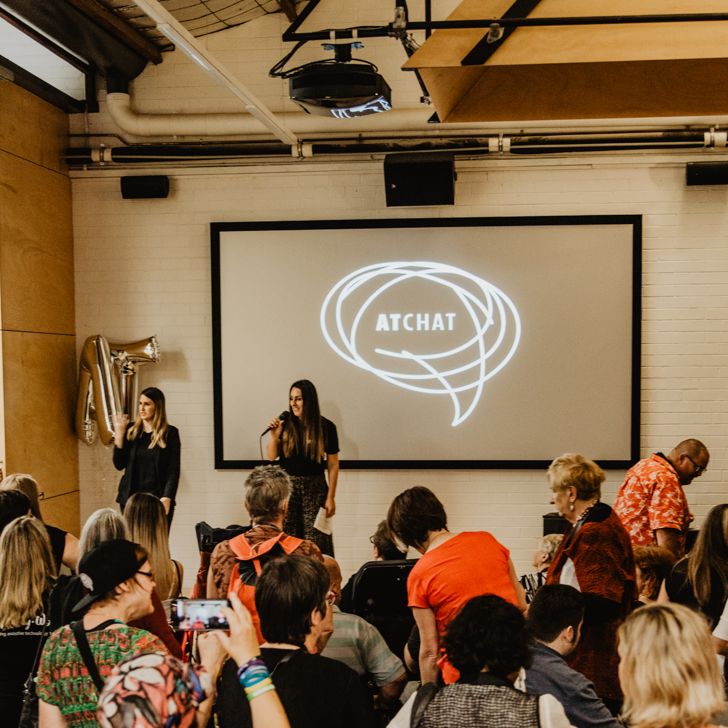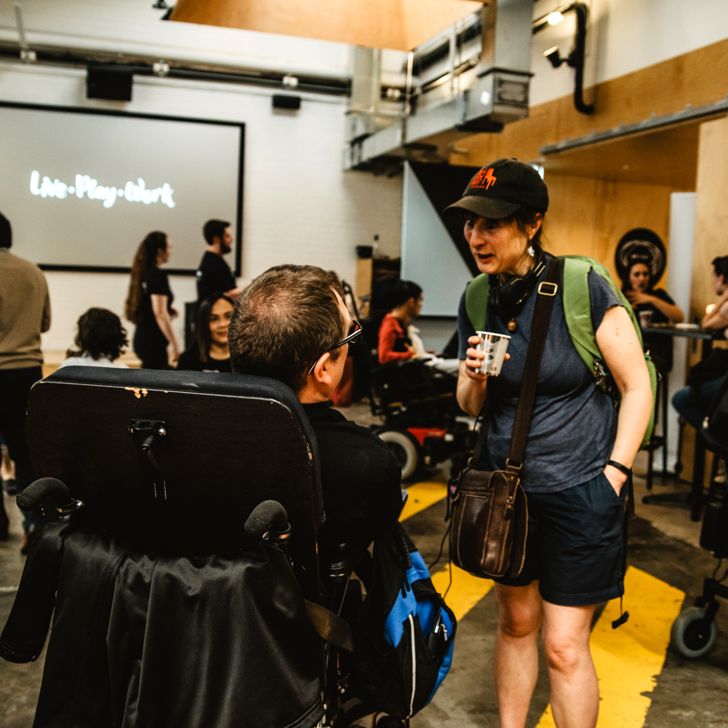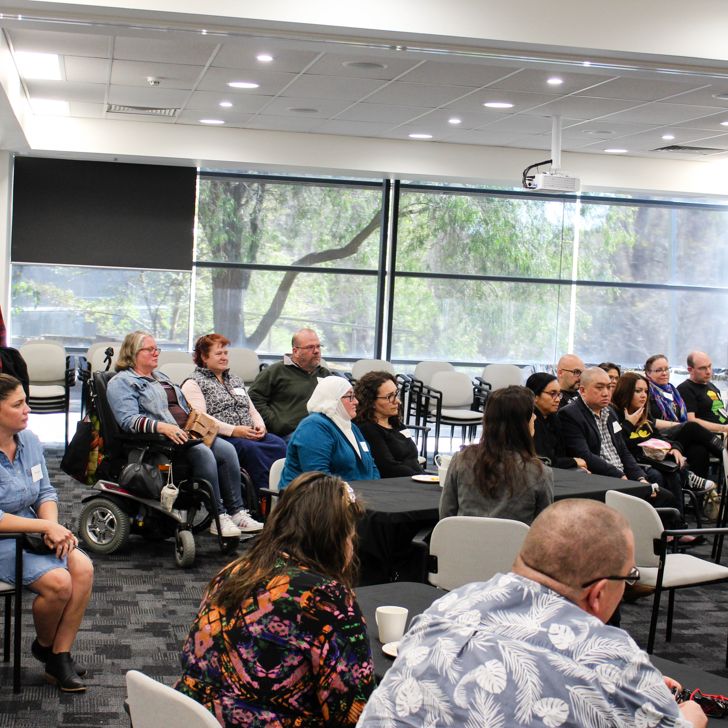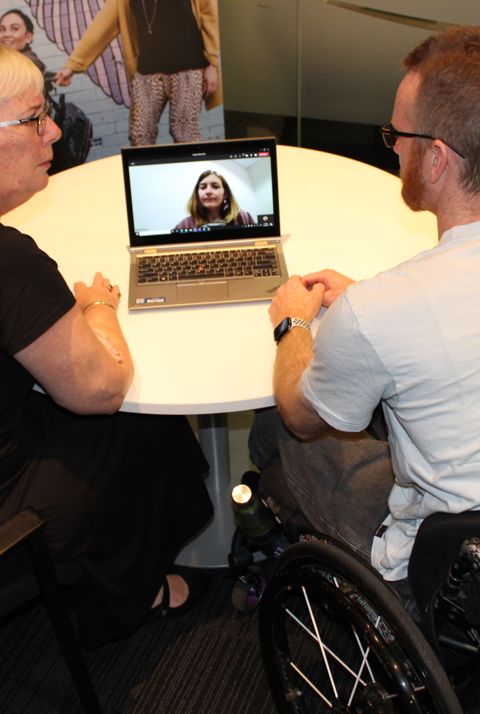Best practice
Our best practice is a commitment to research, evidence-based practices, co-design and sharing our outcomes with our community.
In 2018, an NDIS Information, Linkages and Capacity Building Grant enabled AT Chat to develop the AT Navigation Program (formerly the AT Chat Peer Mentoring Program). Our goal was to co-design a holistic, person-focused, AT decision making support model that was based on three building blocks of evidence; co-design, peer support model and research.
The AT Chat team, led by Dr Natasha Layton, examined the learnings and outcomes of the co-designed online platform and peer support network through the 2021 journal article: ‘Co-creating an assistive technology peer-support community: learnings from AT Chat’.
This article supports the co-design ethos involving critical evaluation of the roles of assistive technology (AT) users and professionals, and the transformation of AT service delivery steps into accessible, evidence-based resources.
Our Co-design
AT Chat brings an inclusive approach to finding out what “good looks like” in AT by ensuring AT users, AT experts, AT practitioners and the wider AT community are part of the development, design, and review of the AT Chat programs and content.

Our Peer Support Model
Building on two years of team development with intersectional capabilities, the AT Chat team brought their experience of running the Chatterbox AT peer support community, into the design process of the AT Navigation Program, which was the foundation for the AT Mentor Service.

Our Research
AT Chat's research objective was to co-design an AT decision making support model with end users. This model would respond to individual capacity; facilitate choice and control; and recognise changing capacity.
Numerous iterations based on co-design methodologies led to the peer mentoring model and guided the pilot conducted in early 2020.

Peer Mentoring delivered through AT for Me
Based on research and response to the AT Peer Mentoring program, AT Chat now offers a range of different services to meet your needs: AT Mentor service, AT Navigator service, Chatterbox and MyATOF. To find out more, visit AT for Me.
AT for Me Service
Ready to find the perfect assistive technology for you?
AT for Me is about finding the right assistive technology (AT) support to help you to live, work and play. Read more about our services and choose the one that meets your needs.
